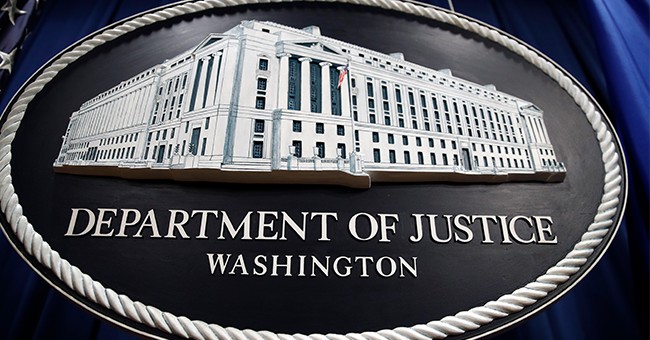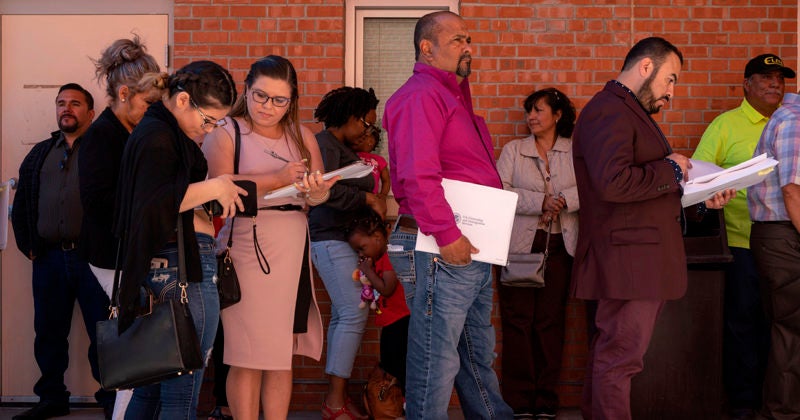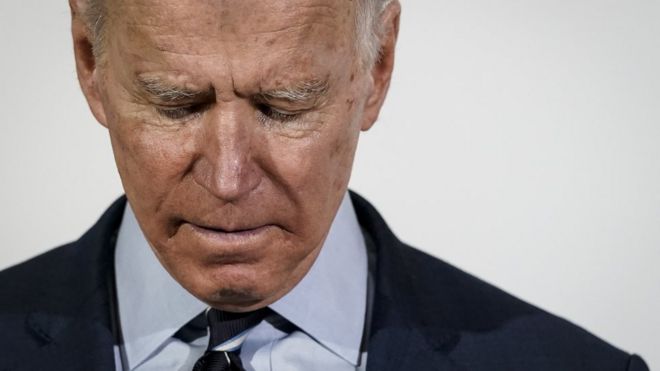[This article is excerpted from a talk delivered on February 22, 2020 at the
Austrian Student Scholars Conference, hosted by Grove City College in Pennsylvania.]
I. Introduction
What a wonderful gathering of students today, on this impressive and beautiful campus. We can see why Hans Sennholz loved this place, and why Drs. Herbener and Ritenour so enjoy living and teaching here. You are all too young to serve as the "remnant," so we will consider you the vanguard instead. I'm always impressed by young people with an interest in serious scholarship and ideas, who have the intellect to read 900-page books. We are told nobody reads anymore, and certainly not dense tomes about economic theory, but this raises a question: are the rare people who do read such books likely to be more important or less important in the future? I suspect the former.
Imagine how pleased Ludwig von Mises would be by this conference today, to know people still find his work vital and relevant nearly half a century after his death. He is far better known today, and far more widely read, than during his lifetime. And most of his important works today are available in multiple languages, online, free and instantly to anyone around the world. What more could any important thinker want?
There is a wonderful French expression, élan vital, which technically translates to "vital impulse" or "vital force" in English. The early twentieth-century French philosopher Henri Bergson developed the term to describe the creative force within an organism which drives growth, change, and desirable adaptation. Professor Mises liked it so much that he discussed it toward the end of Human Action, to make the broader point that human history is not deterministic, that individuals acting purposefully and willfully could change their fortunes. In other words, human volition trumps fate. We are all possessed of at least some measure of our own élan vital.
Now for some reason, dead philosophers get a lot more respect than dead economists! Maybe this is because philosophy seems ancient and timeless, suited to the human experience across any age.
II. Dead Economists vs. Presentism
But if Bergson's vital force moves us inexorably forward, why study dead economists at all? What can an economist like Mises, born in the late nineteenth century into a vastly different world, teach us today? Why in the world should a group of young students gather in Grove City, Pennsylvania, in 2020, to consider a school of economics with roots in Habsburg-era Vienna?
These are fair questions, given the relentless doctrine of “presentism” which dominates everything in our culture today today. Presentism is the ahistorical and arrogant insistence on interpreting past events, historical figures, and existing bodies of knowledge by the supposedly enlightened standard of our time—standards which shift so rapidly that today’s wokest enforcers are tomorrow’s victims of the mob.
Presentism is at the core of the progressive worldview, which insists the past is always retrograde, the present is always better but still deeply imperfect, and the future has an ultimately happy deterministic arc. It is one manifestation of the hubris which comes from imagining we live in a unique time, and a uniquely enlightened time.
Presentism is the hallmark of the imagined economics smart set: the Paul Krugmans, Christine Lagardes, Thomas Pikettys, Noah Smiths, and Benyamin Appelbaums of today. The economics they advocate—mostly in blogs, social media, financial news shows, or pop books, and never in treatises—is sui generis, unique to them. It’s their own economics, created out of whole cloth by them individually, supposedly scientific and brand new, to suit today’s world. It’s a New Economics for 2020. And of course they all insist they’re merely following and interpreting the data, going where it takes them. After all, they're scientists!
But exactly what theory or education or discipline do they apply to that data? Is it really economics?
Of course we know there is no New Economics any more than there is new physics or new calculus. There are advances and discoveries in economic science, and there are new technologies which of course have an enormous effect on economies. But economics is, and always will be, about human action in the context of choice, scarcity, opportunity cost, and subjective measures of value.
It’s no secret where these economists and professors and New York Times pundits get their views, even if they don’t have much of a sense of their place in the field. And why should they? It’s entirely possible to obtain a PhD in economics without taking a single course in the history of economic thought. Their economics represent warmed-over Marx, or Keynes, or John Kenneth Galbraith, or Paul Samuelson, though they rarely mention these names. They don't announce themselves as neo-Keynesians, or Samuelsonites, or as advancing the views of any dead economist—because presentism makes that unthinkable. They are their own economists!
But it turns out their ideas and policy ideas aren't new at all. It’s all about demand, demand, demand, whether from workers or shoppers or homebuyers or restaurant diners or students paying $40,000 for a year of college. Every economic policy they conjure, whether fiscal or monetary, comes down to one goal: stimulating demand, encouraging all of us to want to borrow more and spend more. That’s it. All of their modern economic theories come down to consumption über alles. That’s how the modern profession thinks we create an economy.
Austrian economists, by contrast, often tend to preface every argument with a reference back to the old masters like Mises or Hayek, as though there is only old economics. It's a marketing problem in a world of presentism! Are modern Austrians simply less egotistical than their peers, and thus attempt to provide support and foundation for their work? Do they simply recognize economics is built on an edifice of previous knowledge which can’t be thrown out with the bathwater at every new crisis?
But this goes against the grain, because “everybody knows” those old Austrian theories no longer apply in our digital age. Hubris is the order of our day, not the humility of a cautious and circumspect social scientist engaged in truth seeking.
III. How Economics Lost Its Way
So why indeed should we consider dead economists? The answer, of course, is that they still have something to tell us about the world and how it works, that their work forms the foundation from which today’s analysis should begin. Something the Krugmans and Pikettys, always shooting from the hip and following the data wherever it goes, cannot provide.
In fact, from what I can tell most economists don’t concern themselves much at all with finding truth or helping us better understand the world. Their focus is not on serving humanity by working to increase our wealth and happiness. From my perspective economics exists mostly to provide sinecures for people whose chief concern is whether a tiny group of their peers think they’re smart.
Somewhere along the way, economics stopped attempting to serve humanity by making us happier, healthier, and wealthier. Somewhere along the way, economics became a discipline of hyperspecialized technicians, of statistics and data and models. Somewhere along the way, economics got small. It lost its élan vital.
So what happened? In a sense economics simply succumbed to the ugly hubris of our day.
The mood in the West is not friendly to intellectuals, much less dead intellectuals. We prefer social media and short videos to books and lectures. We want journalism to provide entertainment, to match our short attention spans. We want someone to curate and provide us with easily digestible information and news, rather than seeking original sources for ourselves. We don’t have time for context or nuance. With limited knowledge of history, we tend to fetishize new over old, modernity over tradition, and data over theory. In our self-regard we imagine ourselves in a new era, where old knowledge and wisdom no longer apply.
But we imagine this at our own peril. The accelerating pace of technology lulls us into believing human development is linear. Technology, not dusty old ideas from another century, seems the primary driver of change. But technology can’t answer the age-old question of whether humans choose compulsion or cooperation: it cannot create a “third way” between market and state. Ideas still rule the world, but sometimes we mistake new technology for new ideas.
All of the exciting developments seem to abound only in the physical sciences. Quantum mechanics promises to dramatically increase computing power. Physicists and engineers make the possibility of affordable private space travel closer to reality every day. Advances in artificial intelligence, computer science, and information technology promise to radically alter our physical world through an emerging Internet of Things. If there’s one thing that still excites the Western imagination, it is the possibility of radical advances in technology—all due, at least in large part, to advances and applications in the physical sciences.
By contrast, the social sciences and humanities are moribund, reduced to hyphenated studies and manufactured “intersectionality” disciplines. Academic work in the soft sciences is shrill and brittle, far more concerned with political and cultural crusades than teaching students or engaging in serious scholarship. Music, cinema, modern art, and literature suffer under the weight of their own pretensions and heavy-handed messaging. Historians whitewash history, English professors ignore English literature, and sociology devolves into a definitional science. Yale scraps art history.
Then we have economics, the orphaned social science whose practitioners masquerade as data miners. Economics has become the unwitting younger cousin to math, statistics, and finance, which explains why so many universities have shunted it off onto their business schools. Empiricism, the jealous impulse to apply scientific methodology to problems of human action, insists that economists have value only to the extent that they successfully test and “prove” their hypotheses.
As a result, economics has been corrupted into a predictive discipline which fails to correctly predict anything; into a prescriptive discipline which prescribes the wrong policies; and into an empirical discipline which collects data but misses the point.
IV. Why We Need Mises
This is exactly why we need Mises, who perhaps more than any economist of his time understood economics as a theoretical science. But readers of Mises appreciate not only the depth and breadth of his insights, but also the elegance of his language. Even writing in English, a language he adopted in middle age, Mises conveyed dense conceptual theories and big ideas with a vigorous style not normally associated with economists. Nothing in his writing is dry or technical. This is why, for example, opening Human Action to any random page can yield immediate benefits. To use an analogy from the days when music came on vinyl and compact discs, with songs in a particular order, there are no throwaway songs in Mises’s work.
Mises did not hesitate to borrow heavily from other fields in his writing, including history, sociology, and philosophy (especially epistemology and logic), always in the service of presenting economics holistically. His drive to understand the broader implications of human action and reason saved him from the kind of tunnel vision we see in academia today, where intersectionality—far from what its trendy name suggests—serves a narrow political purpose rather than the broader cause of advancing knowledge.
In this sense he demonstrated a characteristic humility, contrasted with the hubris displayed by so many brilliant academics: he understood his chosen profession as part of a larger human experience, rather than a self-serving body of knowledge with rigid boundaries to be guarded even as they continually bump up against other disciplines.
One great example of Mises’s wonderful use of language comes at the end of Human Action, in a typically ambitious
chapter titled “Economics and the Essential Problems of Human Existence.” As usual, Mises’s syntax and diction hardly bring to mind a boring economics text:
Our “ineradicable craving” compels us to seek happiness, minimize discontent, and spend our lives “purposively struggling against the forces adverse to (us).”
“Civilization, it is said, makes people poorer, because it multiplies their wishes and does not soothe, but kindles, desires. All the busy doings and dealings of hard-working men, their hurrying, pushing, and bustling are nonsensical, for they provide neither happiness nor quiet.
Yet all such qualms, doubts, and scruples are subdued by the irresistible force of man's vital energy. As long as a man lives, he cannot help obeying the cardinal impulse, the élan vital.”
Not the kind of stuff I remember from my undergraduate micro class!
Mises’s work exemplified the spirit and sense of life missing from economics today. We don’t revere dead economists to maintain their place in some academic hierarchy, or to satisfy an atavistic desire for an unchanging intellectual order. We revere them because their ideas still have purchase, because their work yields knowledge that is sorely needed today. We read them and promote them in order to understand the world as it is, filled with billions of purposeful but often irrational human actors. We need dead economists to save us from ourselves and to refute the stubborn myths of collectivism. We need them most of all because their work and their insights are far superior to those of most economists alive today. There is no New Economics, only new academic work which painstakingly advances the knowledge bequeathed to us.
V. Conclusion
Mises certainly lived his life with a certain quiet élan, even in the face of setbacks and slights that would enrage a lesser man. Through it all he maintained a quiet dignity and elegance reminiscent of Old Austria. Never giving up, never giving in, always turning to the next task with steady resolve, believing in his work when the world did not.
Of course Mises sometimes allowed himself to succumb to pessimism, which you know if you’ve read his memoirs. Anyone who lived through the Great War, who had to flee authoritarianism and uproot his life twice, who had to start over financially and otherwise in a new country, in a new language, who was treated so shabbily by the academic establishment, can be excused for this.
We don't have that excuse. We have the full body of Mises's work to read and enjoy, to guide us in our thoughts and actions today. We can read more Mises in 2020, and less throwaway news and political commentary. His work inspires and engages us in ways that saturated social media outlets, lightweight editorialists, and maudlin self-help literature do not. Let’s face it: most articles, books, podcasts, and television shows today are not worthy of our time. Free online content is almost infinite today, but time surely is not.
Yes, there are very dark clouds on the horizon. Liberalism, the good and true version, never fully took hold in the West. And it’s waning today. We shouldn't kid ourselves about this, or pretend otherwise. The West is politically illiberal today, and getting worse. But this does not counsel despair; it counsels us to summon our own sense of élan vital.
Jeff Deist is president of the Mises Institute. He previously worked as chief of staff to Congressman Ron Paul, and as an attorney for private equity clients.



















